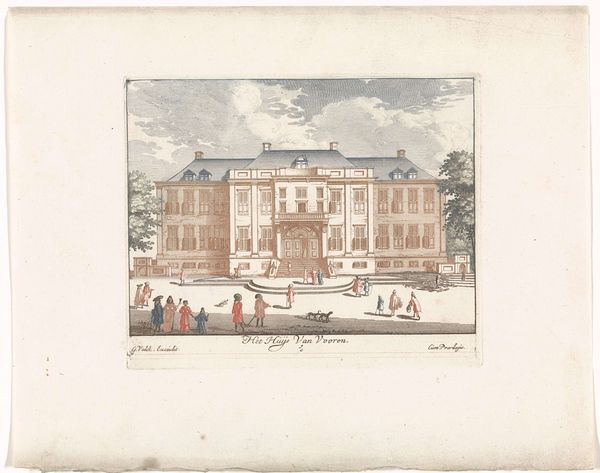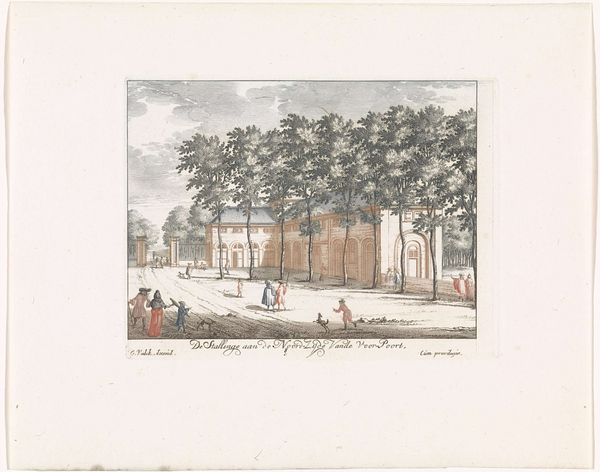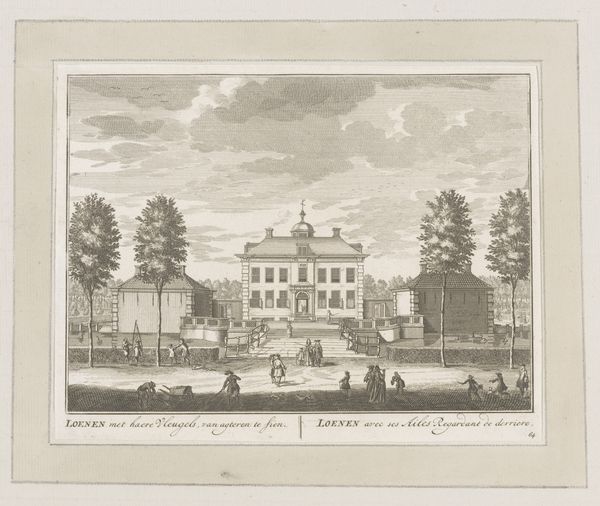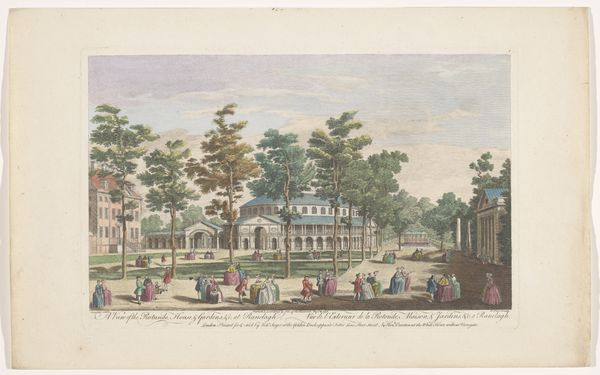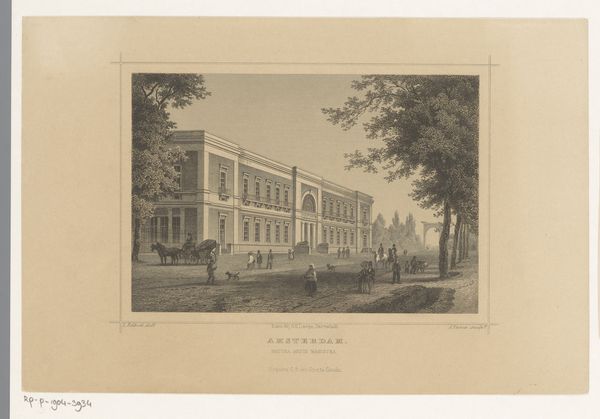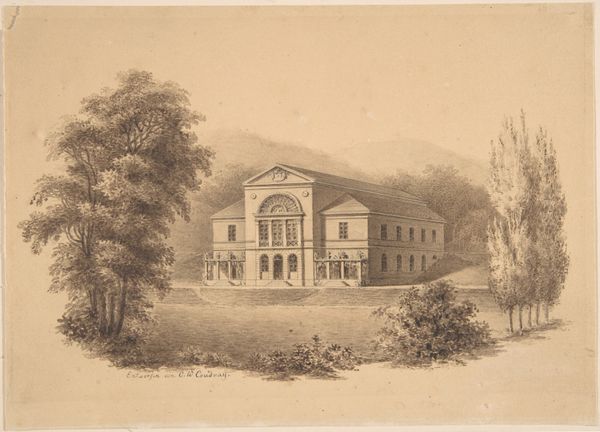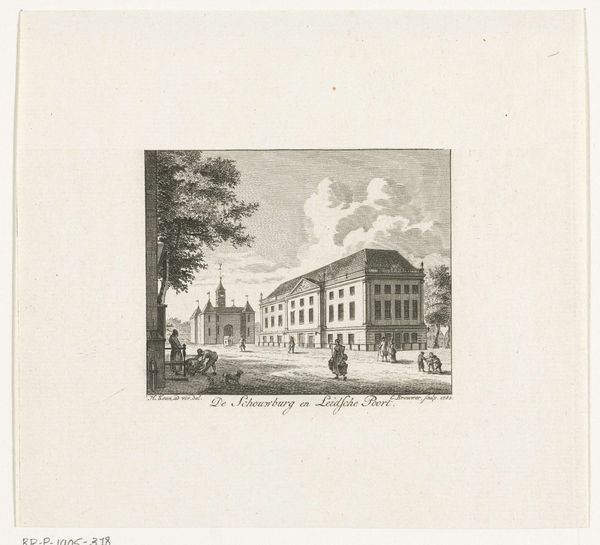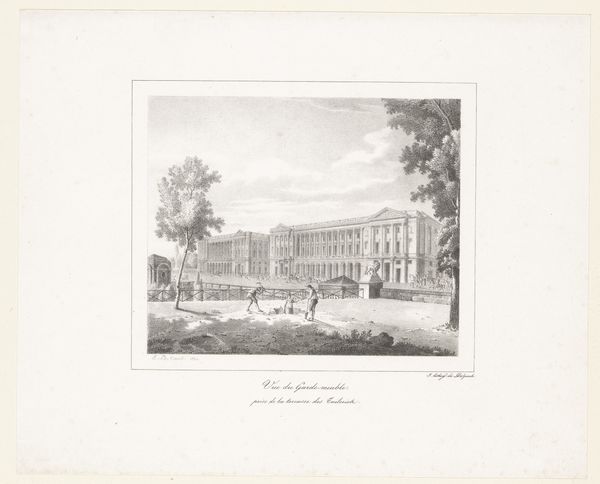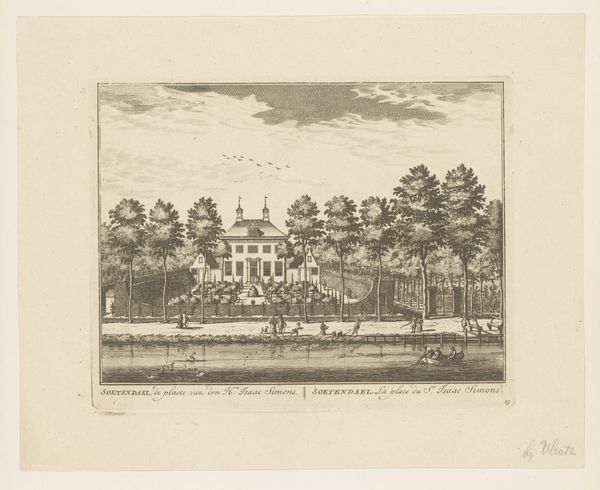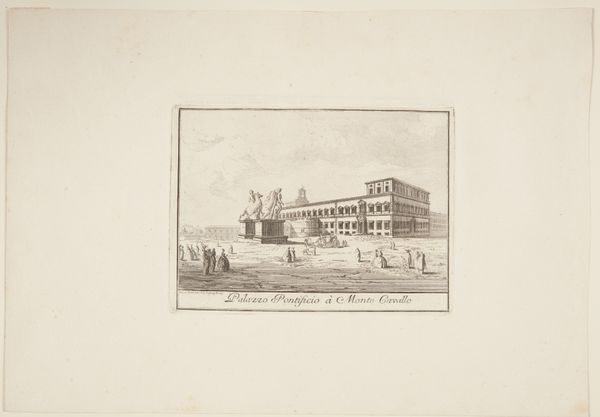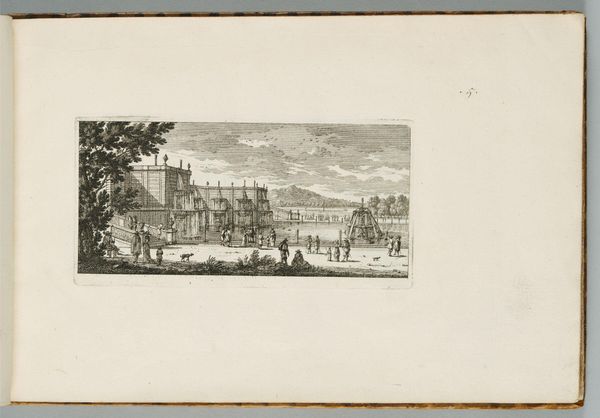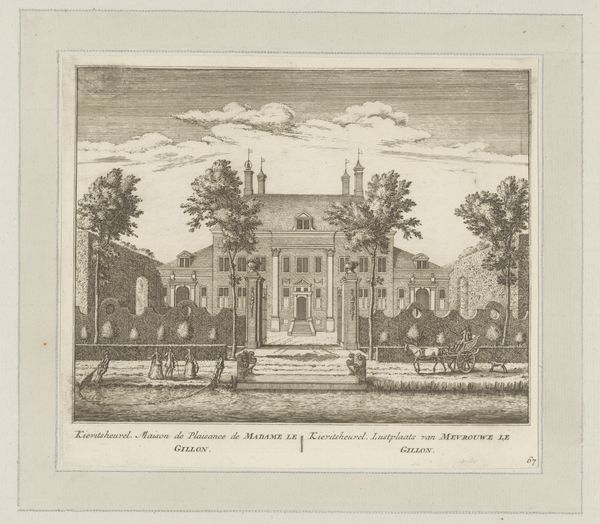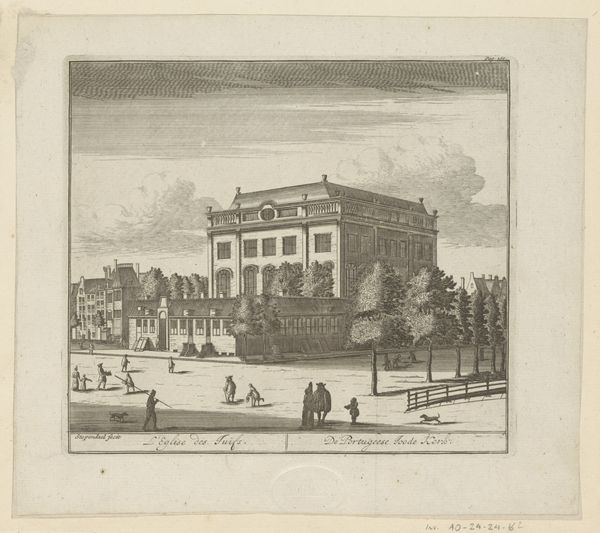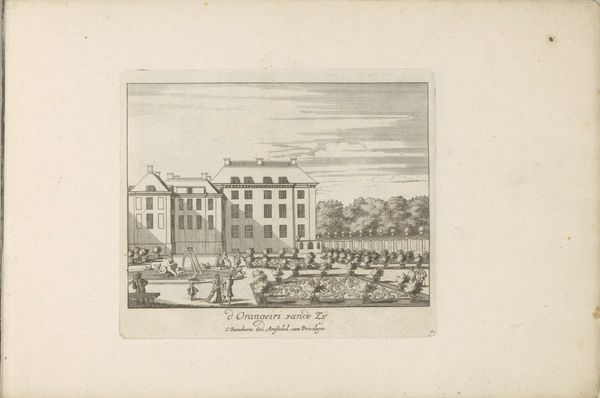
print, etching
#
baroque
#
dutch-golden-age
# print
#
etching
#
landscape
#
etching
#
cityscape
Dimensions: height 129 mm, width 170 mm
Copyright: Rijks Museum: Open Domain
This is an anonymous rendering of Paleis Soestdijk, presenting its south side. Within this image, the symmetry and the structured garden evoke a sense of order and control, reflecting the values of the ruling elite. Note how the building is set back, elevated from the street behind a stone wall, as though on a stage. This spatial arrangement creates a sense of detachment, even as the figures in the foreground go about their daily routines. Consider how the geometry of the facade mirrors the rational ideals of the time. Buildings like this represented stability and power but also became stages where societal aspirations were performed. We see similar themes in other architectural representations throughout Europe, where structures served to project political narratives. The image invites us to explore how these symbols of power are not static. The very act of portraying the palace makes us think about how it functions within the broader cultural imagination. A cycle of representation, reinforcement, and reinterpretation occurs, where symbols evolve, but their roots remain in the human quest for meaning.
Comments
No comments
Be the first to comment and join the conversation on the ultimate creative platform.
